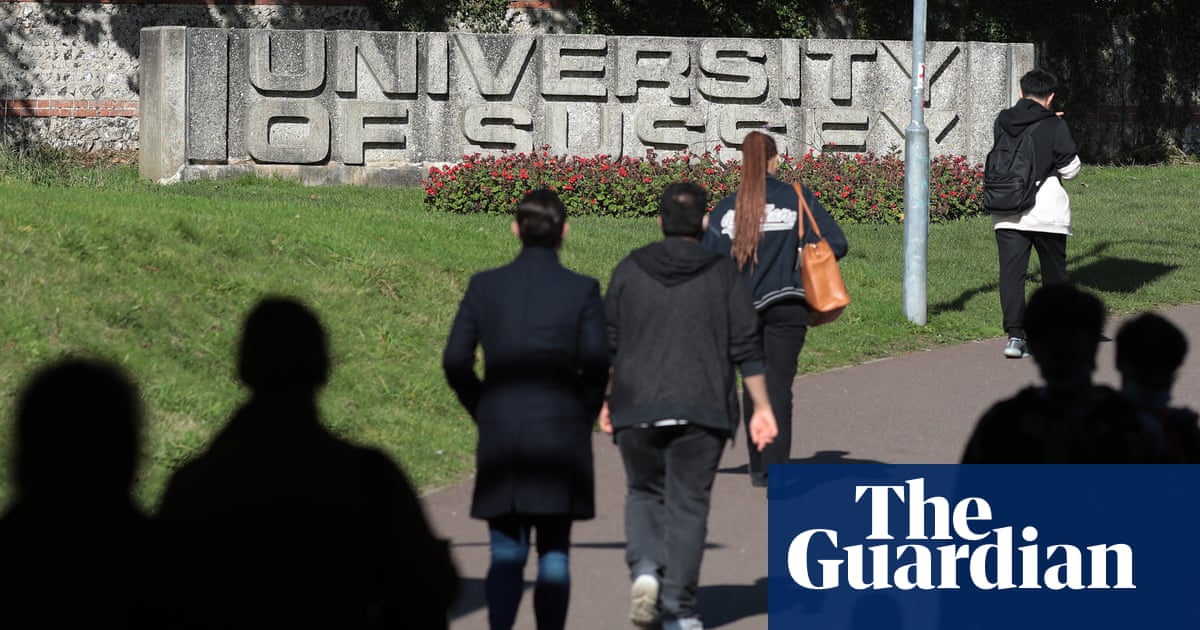
University staff and students can make provocative statements on subjects such as Israel and Gaza as long as they do not break laws on incitement or harassment, under proposals by the government’s campus free speech tsar.
Arif Ahmed, the newly appointed director for academic freedom of speech at the Office for Students (OfS), said universities and colleges in England that infringed the rights to expression of individuals would face fines under the new complaints process.
Ahmed said he would not pronounce whether students or staff voicing support for a “global intifada” against Israel, or the use of slogans such as “from the river to the sea”, would be protected by the new rules before their introduction in August.
“I’d be reluctant to say any particular phrase is always going to be acceptable or always not, because with many of these things it’s going to be depend on a variety of factors. I’m definitely not going to say: oh you can always say something or you can never say something, for that reason,” Ahmed said.
“There’s always going to be the line between what the law permits and what the law doesn’t permit. Speech that amounts to illegal harassment, stirring up racial hatred, inciting violence, stirring up religious hatred – none of that would be protected.”
The limits of free speech and antisemitism on campus have become controversial in the US after a congressional hearing in which the leaders of three elite universities appeared to equivocate over how to deal with statements supporting genocide against Jews.
Elizabeth Magill, the president of the University of Pennsylvania, resigned shortly after last week’s hearing, in which she said it was “a context-dependent decision” on whether supporting genocide was bullying or harassment.
Claudine Gay, the president of Harvard, apologised for her remarks at the hearing but also faced calls to resign.
Asked about the US examples, Ahmed said: “I can’t really get into individual cases. I will say, however, that speech that incites violence, speech that amounts to illegal harassment, speech that stirs up racial hatred, that will not be protected under any circumstances. And the reason that I can say that is because that fits into existing legal constraints.”
Students, staff and others will be able to lodge a complaint with the OfS if they feel penalised by a university or student union for exercising their right to free speech. The provisions will cover visiting speakers whose invitations are cancelled.
Ahmed said it was important that students and academics “be allowed to hear and discuss a whole range of views, including ones that they might find controversial or offensive, or distasteful or shocking”.
He said: “All we’re concerned with is the protection of legal speech. That is, if your expression or view is within the law then it falls within the scope of our protections. If it’s not then it doesn’t.”
The OfS has issued a consultation on applying its rules to student unions, which face regulation on free speech issues for the first time. One of the OfS’s first tasks will be to draw up a list of student unions in England that it will oversee, as well as issuing guidance on their duties under the law and monitoring their compliance including the creation of codes of conduct.
A spokesperson for NUS Charity, which supports student unions, said: “Student unions understand they have an important role to play in maintaining campus cohesion, and that includes facilitating debates in a supportive, collegiate and equitable environment.
“There is potential for these responsibilities to conflict and a delicate balance must be struck between them. We look forward to responding to the consultation and continuing to work with the OfS and other sector partners to ascertain exactly where that balance may lie, and to further promote freedom of expression.”
Universities UK, which represents vice-chancellors, said it would “carefully consider” the OfS’s proposals. “It is crucial that the OfS and the sector as a whole works together to ensure that everyone on campus feels able to share their lawful views and opinions,” a UUK spokesperson said.
It has emerged that universities lobbied the government over a proposed amendment to the higher education free speech bill that aimed to reveal the sources of overseas donations above £50,000.
An investigation by the OpenDemocracy news site found that the University of Cambridge was among those that lobbied against the proposal last year, telling the government it would “have a hugely damaging impact” on donations.
Since 2017, Russell Group universities have received anonymous donations worth £281m, including those from overseas, the investigation found.










